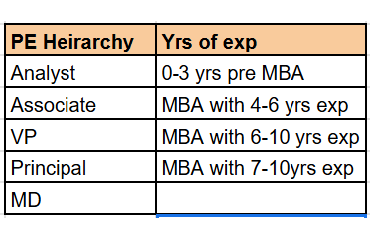
Mumbai has always been called the city of dreams. But by 2025, the “dream” feels a little different than it did a decade ago. Instead of aspiring only to film, stock markets, or corporate banking, people are now talking about AI engineering, fintech startups, blockchain solutions, and even green finance. The mix is fascinating. If you’re someone trying to map your career path in finance or technology in this city, you might be asking where should you begin, and what’s really worth your time?
Let’s break this down.
Why Are Finance and Tech Jobs Surging in Mumbai?
You don’t have to be glued to Bloomberg to see it. Just take a walk around BKC (Bandra-Kurla Complex) or Powai’s startup ecosystem, and you’ll notice the explosion of offices with names you didn’t hear five years ago. Big consulting firms share walls with fintech unicorns. Trading floors buzz next to app development hubs.
The reason? Two streams converging. Mumbai has always been India’s financial capital, but now it’s also riding India’s digital wave. Think of it like a double-engine train one engine powered by traditional finance (banks, stock exchanges, investment firms), and the other engine driven by tech (AI, cloud, cybersecurity). Together, they’re pulling the economy faster than ever.
What Jobs Are We Really Talking About in Finance?
You might think finance is all about investment bankers with their three-piece suits. That’s part of the picture, sure, but the canvas is much bigger in 2025. Let’s look at some roles that are buzzing:
-
Wealth Managers and Financial Advisors – As more young Indians build disposable income, the demand for personalized investment advice is peaking.
-
Equity Analysts and Research Associates – The stock market doesn’t sleep, and neither do these jobs. Analysts decode market movements for brokerages and institutions.
-
Risk Managers – With volatile global markets, companies now want specialists who can “stress test” portfolios against surprises.
-
Fintech Product Managers – Sitting at the intersection of money and apps, they shape platforms like Paytm Money or Zerodha Varsity.
Now here’s an interesting digression: in 2025, finance jobs aren’t just about number-crunching. They’re about storytelling with numbers. A wealth manager isn’t only selling mutual funds; they’re convincing you emotionally about securing your child’s education or parents’ retirement. That human side of finance has become its edge.
What About Technology Roles in Mumbai?
This is where things get electric. Mumbai used to play second fiddle to Bengaluru in the tech scene. But not anymore. With Reliance Jio, TCS campuses, and dozens of SaaS startups rooted in the city, Mumbai is drawing developers and product folks back.
Here’s what’s hot:
-
AI and Machine Learning Engineers – From fraud detection in banks to chatbots in e-commerce, AI is everywhere. And it’s not just Python coders they’re looking for people who can explain models in plain English to managers.
-
Cybersecurity Analysts – With digital fraud rising, every bank and trading firm is hiring security pros like there’s no tomorrow.
-
Cloud Architects – AWS, Azure, GCP they’re not just logos. They’re the backbone of fintech scalability.
-
Data Scientists – Everyone says “data is the new oil,” but in 2025, it feels more like water everywhere, vital, and mismanaged without specialists.
And guess what? Even traditional banks are hiring coders. ICICI has tech teams building payment APIs; SBI has AI chatbots. The line between finance and tech is blurring so much that we often talk about “fintech professionals” as a single category.
Where Do Freshers Fit Into All This?
If you’re fresh out of college in 2025, it might feel overwhelming. Too many choices, too much noise. Should you go for CFA? Should you learn Python? Or maybe both?
Here’s the truth: companies in Mumbai aren’t expecting you to know everything. What they want is adaptability. They’d rather hire someone with basic SQL skills and curiosity about markets than someone with fancy certificates but no hunger to learn.
A fresher in finance can start with roles like junior analyst or client servicing associate, then move towards core roles as they upskill. In tech, fresher-friendly jobs include QA testing, support engineering, or even technical writing each a springboard to deeper specialization.
How Can You Prepare Yourself for Finance Jobs?
It’s not about mugging formulas. Finance careers need a mix of technical knowledge and real-world awareness.
-
Certifications that matter: CFA, FRM, NISM modules. Not mandatory, but they set you apart.
-
Tools you should know: Excel (yes, still king), Bloomberg Terminal, Tableau.
-
Soft skills: Persuasion, clear communication, and the ability to calm a jittery client when markets dip.
And here’s the kicker: don’t just read financial theory. Follow market news daily. Platforms like Moneycontrol or Economic Times can teach you more than textbooks.
How Should You Gear Up for Tech Careers?
For tech, the mantra is simple learn, build, showcase.
-
Languages and frameworks: Python, JavaScript, React, TensorFlow.
-
Projects: Build something. Even a weather app shows initiative.
-
Communities: Mumbai has active tech meetups attend them. Networking can land you interviews faster than job portals.
Also, don’t ignore GitHub. Recruiters check it more than your resume sometimes. A clean repo with projects speaks louder than certificates.
Which Companies Are Hiring in Mumbai 2025?
You probably want names, right? Here are some:
-
Finance giants: Kotak Mahindra Bank, HDFC Securities, Edelweiss, Axis Capital.
-
Tech & fintech players: Paytm, Razorpay, Groww, Infosys, Accenture.
-
Global players: JP Morgan, Morgan Stanley, Goldman Sachs all with Mumbai offices still expanding.
These companies don’t just hire from IITs or IIMs anymore. Tier-2 colleges, self-taught coders, and lateral entrants have equal chances if they prove themselves.
What Salaries Can You Expect in 2025?
Here’s where ears perk up. Average fresher packages:
-
Finance roles: ₹5–8 lakh annually (entry-level analysts).
-
Tech roles: ₹6–12 lakh annually (developers, engineers).
-
Fintech crossover roles: ₹8–15 lakh annually (product, data, risk-tech).
Of course, senior roles skyrocket. A VP in investment banking could hit ₹60 lakh or more. A senior data scientist? ₹50 lakh isn’t rare.
Why Does Mumbai Still Outshine Other Cities?
Bengaluru may have tech, Delhi may have politics, but Mumbai has something harder to define its pulse. The stock exchanges, the RBI, the constant hum of money changing hands it keeps drawing people.
Plus, Mumbai’s culture of “hustle” matches finance and tech’s fast pace. Long hours, high stakes, high rewards it’s not everyone’s cup of tea, but for those who thrive on energy, there’s no better place.
What Should Be Your Next Step?
If you’re serious about a career in finance or tech in Mumbai, don’t wait for the “perfect” plan. Start with small steps: upskill, network, intern. Think of it like compounding interest. Small investments in skills today snowball into big career returns tomorrow.
And remember, jobs aren’t just about salaries. They’re about growth, purpose, and yes, a bit of excitement. Whether you’re helping a client secure their retirement or coding an AI tool that prevents fraud, you’re shaping the future economy.
Closing Thought
So, where do we stand? By 2025, jobs in Mumbai aren’t just plentiful they’re diverse, demanding, and deeply rewarding. Finance and tech are no longer separate highways; they’ve merged into a fast-moving expressway. If you’re ready to learn, adapt, and hustle a little, there’s a spot for you on that ride.
And who knows you might not just get a job. You might build a career that feels like a calling.
Don’t stress about searching every career page or job site. Stay ahead with the latest opportunities from different sources right here!
Related Articles
You've gone through an education system that probably never taught you anything about professionalism, logical deconstruction, and comfort with ambiguity. You may have tremendous bookish knowledge, but lacking these three attributes is an immediate invisible red flag that will stop you from getting the job or the promotion you always wanted.
Let's throw some light on the top-5 common mistakes that highlight your lack of these attributes, and what you should be doing instead
- Showing up late without informing your interviewer/coordinator - there are genuine reasons one could be running late, but that needs to be duly communicated ahead of the planned interaction. Inform every marked on an invite, drop a text or give a call, but keep your stakeholders informed. Their time is as much valuable as yours.
- Turning up unprepared for the interview - if you are turning up unprepared, why is it that you are turning up at all? why waste your and interviewer's time? You are better off declining the opportunity, instead of ruining your reputation unnecessarily. You must invest 1 hour to read about the company, the opportunity, some information in the public domain and so on, if you have chosen to show up for an interview.
- Going silent instead of communicating effectively with your stakeholders - it might come as an insight but everyone knows you would evaluate multiple opportunities before chosing one, everyone knows that your decision might be influenced by your loved ones, and everyone is okay with your being unsure, but nobody likes to be left wondering about what might be happening. So, good, bad or ugly, communicate, communicate and communicate! You'll build more relationships that you ever thought, and you never know, one or more of these relationships may turn gold in the times to come.
- Rambling stuff that does not make sense - let us fill you in on another secret, nobody - not even the most successful individuals can know everything about everything in the world. So, when presented with topics/questions you have no clue about, you got to either draw parallels from what you have expertise on, rationally break down the information you are presented with to come up with simple yet logical answers, or admit you do not know anything about this but can talk about something relevant to the opportunity being discussed in detail.
- Demanding a bomb without a concrete rationale - the whole world is underpaid, friends! who doesn't want more, but that's not how it works. Your next compensation cannot ignore your current and/or previous compensations. If you chose to take a sabbatical, took an opportunity by taking a haircut, or become an entrepreneur that eventually did not work out, you have to make peace with your decision. Nobody else had a say in that! You can definitely demonstrate additional skills/knowledge that you acquired during this period (that surely has a value), but that value isn't the only figure on which your next compensation will be decided on. So, learn about the market standards and try to limit your ask within the broadly acceptable range.
Let’s be honest — job hunting today feels like swiping right on a dating app where no one ever replies. Employers can’t find the right talent, job seekers chase ghost listings, and somewhere between “We’ll get back to you” and “Position closed,” everyone loses their sanity.
Enter Aplushub — the career saver we didn’t know we needed.
Why Aplushub Exists
Born from the chaos of the modern job market, Aplushub was built on one bold idea — quality over quantity. It’s not just another job portal flooding you with random roles. It’s a curated ecosystem that blends AI precision with human insight to filter out the clutter and keep only what truly matters: authentic, relevant, and verified opportunities.
What It’s Solving
Aplushub is tackling the biggest pain in job search — noise. Fake jobs, expired links, spam recruiters, and endless scrolling are replaced by clean, credible listings. The platform categorizes openings into Free Jobs (posted directly by employers) and Premium Jobs (handpicked by Aplushub’s research team from trusted sources and networks). So, no more digital wild goose chases — only jobs worth your time.
Remote Jobs? Absolutely.
Whether you’re working from your couch in Chennai or a café in Manali, Aplushub’s got you covered. The platform features a dedicated Remote Jobs section — tailored for professionals who value flexibility. It connects you with employers who believe talent shouldn’t be tied to geography.
Why It’s a Win-Win
For job seekers, Aplushub is your career compass — one dashboard, hundreds of genuine opportunities, and no shady “DM for job” drama.
For employers, it’s a hidden gem. Posting is free, candidate access is simple, and you get applicants who are genuinely interested — not bots in disguise.
Bonus Perk: The *OpenBook* Advantage
Here’s where Aplushub really flips the script — OpenBook, its transparency-first feature. It gives job seekers a peek into real hiring insights, company trends, and recruiter updates, turning job search into a smarter, more informed experience. No more guessing what employers want; OpenBook hands you the inside scoop to make data-backed career moves.
The Price Tag (Spoiler: It’s Almost Free)
Aplushub keeps things real and affordable. You can explore its free tier, test-drive premium access with ₹50/Month, or go all in with ₹499 for a full year— basically less than your monthly coffee budget to land your next big opportunity.
So whether you’re hiring, hunting, or just tired of the chaos — Aplushub is here to bring sanity (and a smile) back to your career journey.
👉 Visit AplusHub.com — where jobs finally make sense.
Private Equity (PE) is one of the most coveted industries in finance. One of the highest paying industries, Private Equity (PE) attracts absolute creme-de-la-creme of MBA graduates, management consultants, and investment bankers. Also highly competitive, PE funds hire only a handful of investment professionals across levels in a year.
A+ research team has spoken to multiple PE professionals across domestic and global PE funds in India. In the table below, we have compiled average base compensation, variable (bonus) and carry components at blue chip global PE funds in India.
| Role | Yrs of exp | Large Global PE Funds (base salary) | Bonus (as a % of base) | Carry | |
| Analyst | 0-3 yrs pre MBA | $60K-$80K | 60-100% |
Notional Carry or LTI or Certain bonus is paid in the form of carry distribution in case of multi-billion dollar funds*
|
|
| Associate | MBA with 4-6 yrs exp | $100K-$150K | 80-100% | ||
| VP | MBA with 6-10 yrs exp | $200K- $250K | 90-120% |
Estimated 0.5%-2% of the carry pool for a multi billion dollar fund*
|
|
| Principal | MBA with 7-10yrs exp | $300K-$400K | 90-120% | ||
| MD | $500K+ | 100-150% | |||
| Notes: |
These figures are estimates of salaries at top global PE funds like Bain, Carlyle, TPG, Warburg Pincus, General Atlantic and the likes
|
||||
|
Buyout focused funds have 30-50% higher base salaires and respective bonuses
|
|||||
|
*These are estimates from the information gathered through our network; might change/vary with more data
|
|||||




